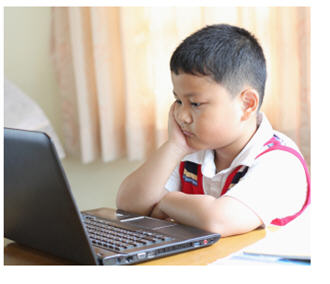
Parents Greatly Underestimate How Often Their Children are Cyberbullied
30 percent of children admit to being cyberbullied, 15 percent admit to cyberbullying
Washington, DC; October 25, 2013—Cyberbullying has become a destructive force in many children's lives. After multiple suicides by children being cyberbullied, parents, more than ever, need to be aware of their children's online activity. A recent paper published in the Journal of Computer-Mediated Communication found that parents underestimate how often their children engage in risky online behavior, like cyberbullying and viewing pornography.
Sahara Byrne, Sherri Jean Katz, Theodore Lee (Cornell University), Daniel Linz (University of California, Berkeley), and Mary Mcllrath (C+R Research) surveyed 465 parent-child pairs on their children's online behavior. They found that parents underestimate how often their child is a victim or perpetrator of cyberbullying, exposed to sexual imagery, and approached by strangers online. The disparity between these behaviors and a parent's perception of the behavior increased when the parent executed a permissive style of parenting.
The study found that while 30% of youths admit to having been cyberbullied, only slightly higher than 10% of their parents reported that they knew. About 15% of the youths in the study admitted to cyberbullying others; under 5% of those parents were aware. The study also suggested that parents of younger teens—those who believe their child is smarter than others online, or who are not able to monitor their teen's internet use—are more likely to be unaware that their child has been cyberbullied.
Parents can take direct steps to helping protect their children online by engaging in positive conversations about internet safety, moving the computer to a public place within the house, which works to varying degree depending on the child's access to the mobile internet. The best step is to open a line of communication with children so parents can increase their awareness of their online behavior.
"Youth believe that social media is their turf and they are somewhat correct," said lead author, Byrne. "Parents sometimes have no idea what their kids are doing online until it's too late."
ARTICLE:
"Peers, Predators, and Porn: Predicting Parental Underestimation of Children's Risky Online Experiences," by Sahara Byrne, Sherri Jean Katz, Theodore Lee, Daniel Linz, and Mary Mcllrath. Journal of Computer-Mediated Communication. Article first published online: 10 OCT 2013, DOI: 10.1111/jcc4.12040
RELATED ARTICLES:
What Are the Risks of Student Cyberbullying?
What Killed Amanda Todd? Cyberbullying and Teen Suicide
Cyberbullying and Bullying Are Not the Same, Says Research
Cyberbullying: 1 in 2 Victims Suffer from the Distribution of Embarrassing Photos and Videos
Bullying Prevention Begins at Home
Poor Parenting—Including Overprotection—Increases Bullying Risk
About ICA
The International Communication Association is an academic association for scholars interested in the study, teaching, and application of all aspects of human and mediated communication. With more than 4,300 members in 80 countries, ICA includes 26 Divisions and Interest Groups and publishes the Communication Yearbook and five major, peer-reviewed journals: Journal of Communication, Communication Theory, Human Communication Research, Communication, Culture & Critique, and the Journal of Computer-Mediated Communication.
